Sebastian Rudolph
Karlsruhe Institute of Technology
How to Agree to Disagree: Managing Ontological Perspectives using Standpoint Logic
Jun 14, 2022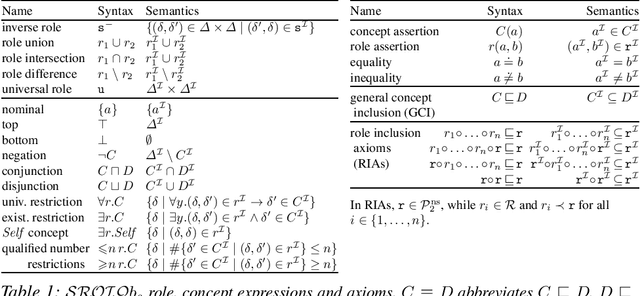
Abstract:The importance of taking individual, potentially conflicting perspectives into account when dealing with knowledge has been widely recognised. Many existing ontology management approaches fully merge knowledge perspectives, which may require weakening in order to maintain consistency; others represent the distinct views in an entirely detached way. As an alternative, we propose Standpoint Logic, a simple, yet versatile multi-modal logic ``add-on'' for existing KR languages intended for the integrated representation of domain knowledge relative to diverse, possibly conflicting standpoints, which can be hierarchically organised, combined and put in relation to each other. Starting from the generic framework of First-Order Standpoint Logic (FOSL), we subsequently focus our attention on the fragment of sentential formulas, for which we provide a polytime translation into the standpoint-free version. This result yields decidability and favourable complexities for a variety of highly expressive decidable fragments of first-order logic. Using some elaborate encoding tricks, we then establish a similar translation for the very expressive description logic SROIQb_s underlying the OWL 2 DL ontology language. By virtue of this result, existing highly optimised OWL reasoners can be used to provide practical reasoning support for ontology languages extended by standpoint modelling.
Semantic Characterizations of General Belief Base Revision
Dec 27, 2021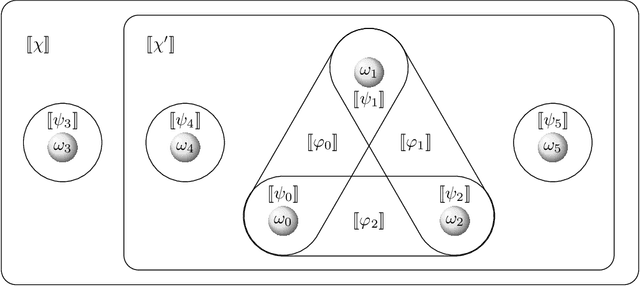
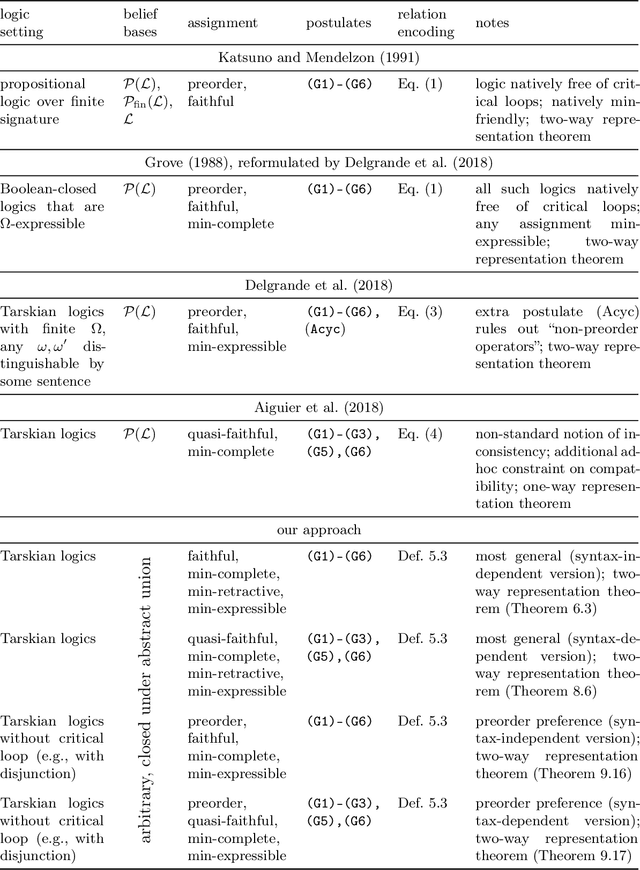

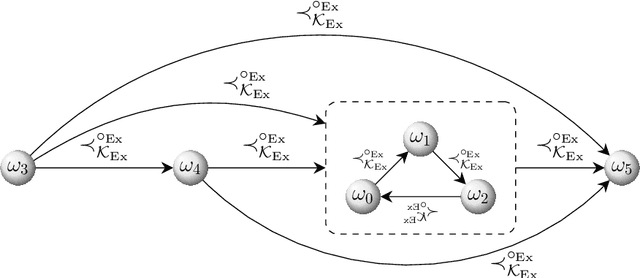
Abstract:The AGM postulates by Alchourr\'on, G\"ardenfors, and Makinson continue to represent a cornerstone in research related to belief change. Katsuno and Mendelzon (K&M) adopted the AGM postulates for changing belief bases and characterized AGM belief base revision in propositional logic over finite signatures. We generalize K&M's approach to the setting of (multiple) base revision in arbitrary Tarskian logics, covering all logics with a classical model-theoretic semantics and hence a wide variety of logics used in knowledge representation and beyond. Our generic formulation applies to various notions of "base" (such as belief sets, arbitrary or finite sets of sentences, or single sentences). The core result is a representation theorem showing a two-way correspondence between AGM base revision operators and certain "assignments": functions mapping belief bases to total - yet not transitive - "preference" relations between interpretations. Alongside, we present a companion result for the case when the AGM postulate of syntax-independence is abandoned. We also provide a characterization of all logics for which our result can be strengthened to assignments producing transitive preference relations (as in K&M's original work), giving rise to two more representation theorems for such logics, according to syntax dependence vs. independence.
The Price of Selfishness: Conjunctive Query Entailment for ALCSelf is 2ExpTime-hard
Jun 29, 2021
Abstract:In logic-based knowledge representation, query answering has essentially replaced mere satisfiability checking as the inferencing problem of primary interest. For knowledge bases in the basic description logic ALC, the computational complexity of conjunctive query (CQ) answering is well known to be ExpTime-complete and hence not harder than satisfiability. This does not change when the logic is extended by certain features (such as counting or role hierarchies), whereas adding others (inverses, nominals or transitivity together with role-hierarchies) turns CQ answering exponentially harder. We contribute to this line of results by showing the surprising fact that even extending ALC by just the Self operator - which proved innocuous in many other contexts - increases the complexity of CQ entailment to 2ExpTime. As common for this type of problem, our proof establishes a reduction from alternating Turing machines running in exponential space, but several novel ideas and encoding tricks are required to make the approach work in that specific, restricted setting.
A General Katsuno-Mendelzon-Style Characterization of AGM Belief Base Revision for Arbitrary Monotonic Logics
Apr 29, 2021Abstract:The AGM postulates by Alchourr\'{o}n, G\"{a}rdenfors, and Makinson continue to represent a cornerstone in research related to belief change. We generalize the approach of Katsuno and Mendelzon (KM) for characterizing AGM base revision from propositional logic to the setting of (multiple) base revision in arbitrary monotonic logics. Our core result is a representation theorem using the assignment of total - yet not transitive - "preference" relations to belief bases. We also provide a characterization of all logics for which our result can be strengthened to preorder assignments (as in KM's original work).
Finite Model Theory of the Triguarded Fragment and Related Logics
Jan 23, 2021
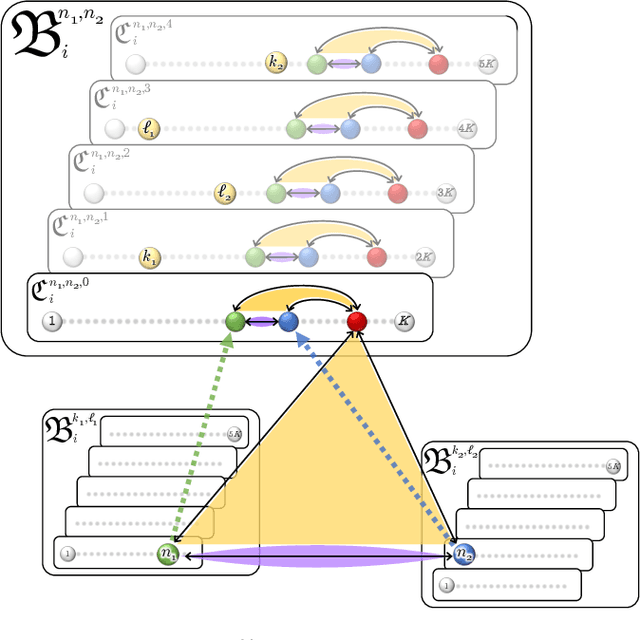
Abstract:The Triguarded Fragment (TGF) is among the most expressive decidable fragments of first-order logic, subsuming both its two-variable and guarded fragments without equality. We show that the TGF has the finite model property (providing a tight doubly exponential bound on the model size) and hence finite satisfiability coincides with satisfiability known to be N2ExpTime-complete. Using similar constructions, we also establish 2ExpTime-completeness for finite satisfiability of the constant-free (tri)guarded fragment with transitive guards.
Knowledge Graphs Evolution and Preservation -- A Technical Report from ISWS 2019
Dec 22, 2020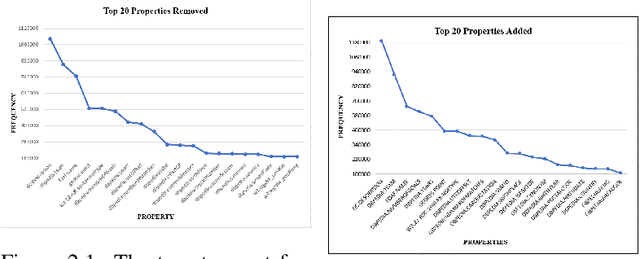
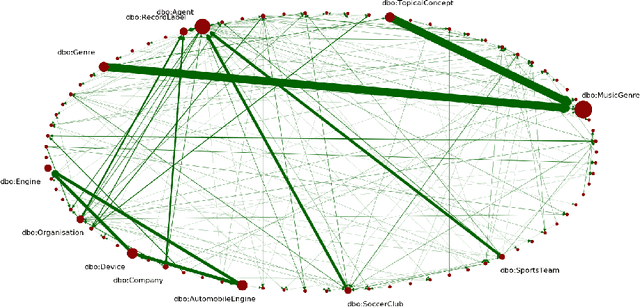
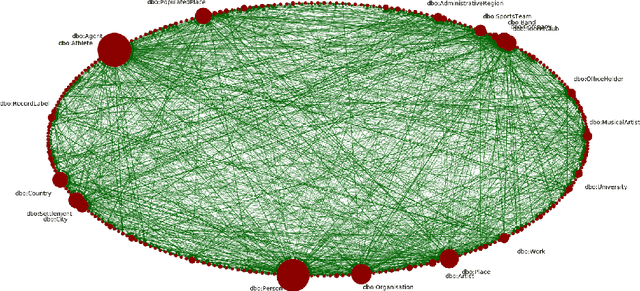
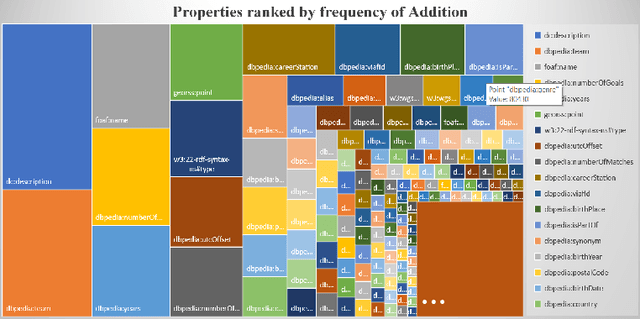
Abstract:One of the grand challenges discussed during the Dagstuhl Seminar "Knowledge Graphs: New Directions for Knowledge Representation on the Semantic Web" and described in its report is that of a: "Public FAIR Knowledge Graph of Everything: We increasingly see the creation of knowledge graphs that capture information about the entirety of a class of entities. [...] This grand challenge extends this further by asking if we can create a knowledge graph of "everything" ranging from common sense concepts to location based entities. This knowledge graph should be "open to the public" in a FAIR manner democratizing this mass amount of knowledge." Although linked open data (LOD) is one knowledge graph, it is the closest realisation (and probably the only one) to a public FAIR Knowledge Graph (KG) of everything. Surely, LOD provides a unique testbed for experimenting and evaluating research hypotheses on open and FAIR KG. One of the most neglected FAIR issues about KGs is their ongoing evolution and long term preservation. We want to investigate this problem, that is to understand what preserving and supporting the evolution of KGs means and how these problems can be addressed. Clearly, the problem can be approached from different perspectives and may require the development of different approaches, including new theories, ontologies, metrics, strategies, procedures, etc. This document reports a collaborative effort performed by 9 teams of students, each guided by a senior researcher as their mentor, attending the International Semantic Web Research School (ISWS 2019). Each team provides a different perspective to the problem of knowledge graph evolution substantiated by a set of research questions as the main subject of their investigation. In addition, they provide their working definition for KG preservation and evolution.
Satisfiability and Query Answering in Description Logics with Global and Local Cardinality Constraints
Feb 14, 2020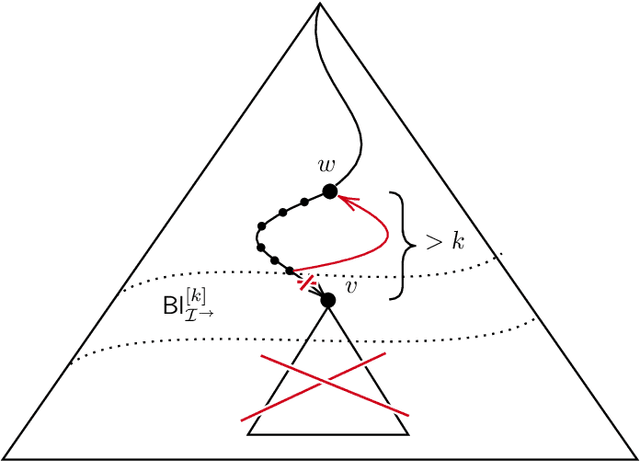
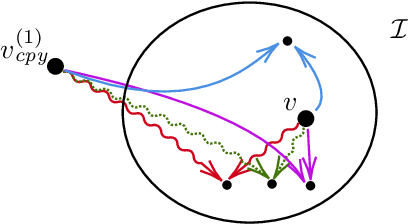
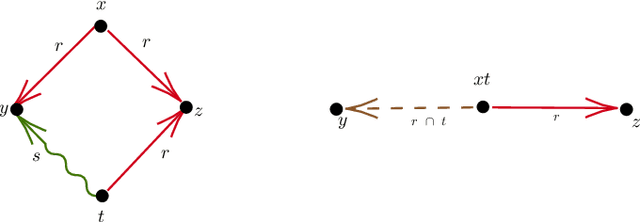
Abstract:We introduce and investigate the expressive description logic (DL) ALCSCC++, in which the global and local cardinality constraints introduced in previous papers can be mixed. On the one hand, we prove that this does not increase the complexity of satisfiability checking and other standard inference problems. On the other hand, the satisfiability problem becomes undecidable if inverse roles are added to the languages. In addition, even without inverse roles, conjunctive query entailment in this DL turns out to be undecidable. We prove that decidability of querying can be regained if global and local constraints are not mixed and the global constraints are appropriately restricted. The latter result is based on a locally-acyclic model construction, and it reduces query entailment to ABox consistency in the restricted setting, i.e., to ABox consistency w.r.t. restricted cardinality constraints in ALCSCC, for which we can show an ExpTime upper bound.
Neural Machine Translating from Natural Language to SPARQL
Jun 21, 2019
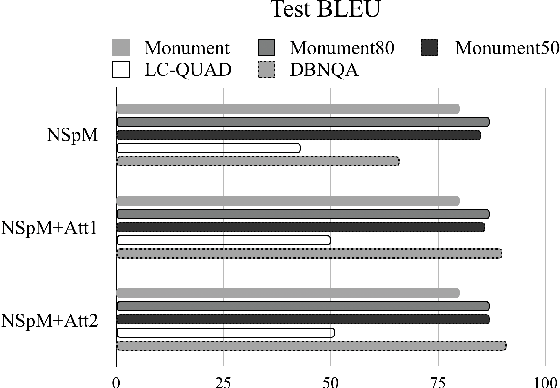

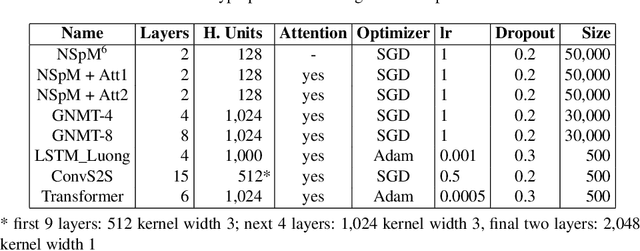
Abstract:SPARQL is a highly powerful query language for an ever-growing number of Linked Data resources and Knowledge Graphs. Using it requires a certain familiarity with the entities in the domain to be queried as well as expertise in the language's syntax and semantics, none of which average human web users can be assumed to possess. To overcome this limitation, automatically translating natural language questions to SPARQL queries has been a vibrant field of research. However, to this date, the vast success of deep learning methods has not yet been fully propagated to this research problem. This paper contributes to filling this gap by evaluating the utilization of eight different Neural Machine Translation (NMT) models for the task of translating from natural language to the structured query language SPARQL. While highlighting the importance of high-quantity and high-quality datasets, the results show a dominance of a CNN-based architecture with a BLEU score of up to 98 and accuracy of up to 94%.
On the Ontological Modeling of Trees
Oct 13, 2017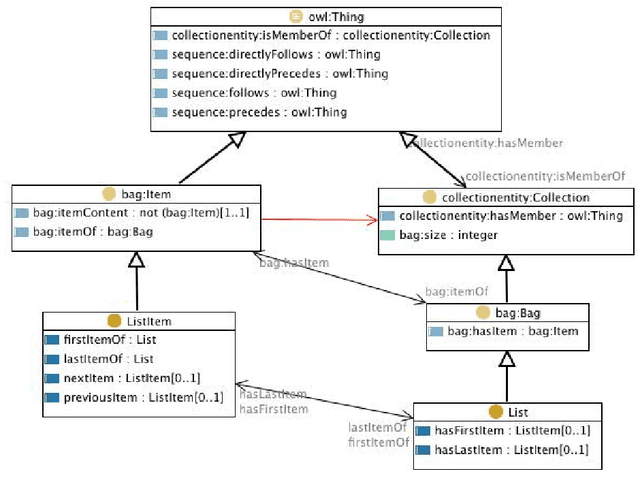

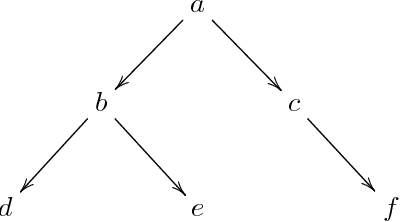
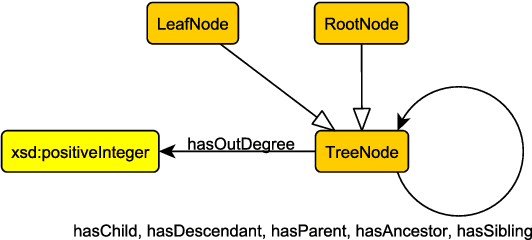
Abstract:Trees -- i.e., the type of data structure known under this name -- are central to many aspects of knowledge organization. We investigate some central design choices concerning the ontological modeling of such trees. In particular, we consider the limits of what is expressible in the Web Ontology Language, and provide a reusable ontology design pattern for trees.
Bound Your Models! How to Make OWL an ASP Modeling Language
Nov 03, 2015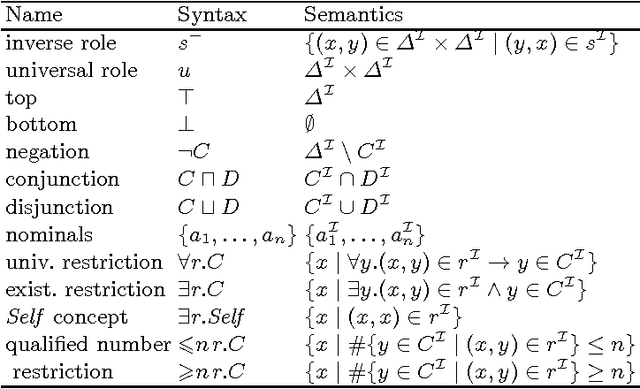
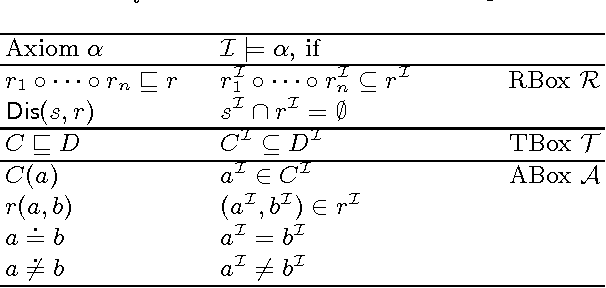
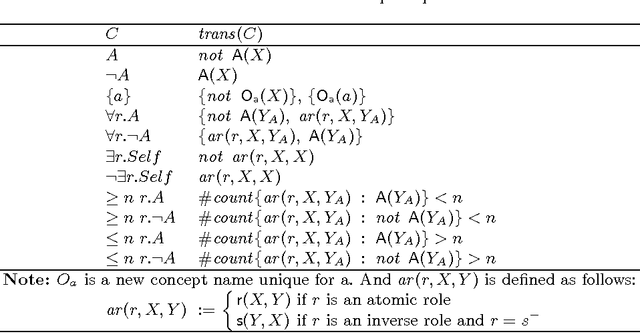
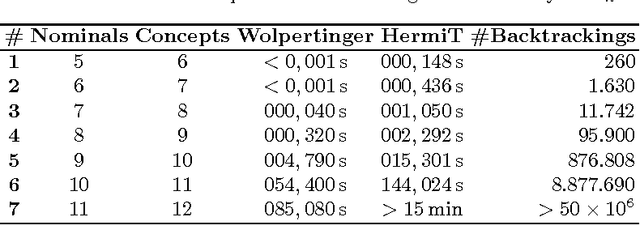
Abstract:To exploit the Web Ontology Language OWL as an answer set programming (ASP) language, we introduce the notion of bounded model semantics, as an intuitive and computationally advantageous alternative to its classical semantics. We show that a translation into ASP allows for solving a wide range of bounded-model reasoning tasks, including satisfiability and axiom entailment but also novel ones such as model extraction and enumeration. Ultimately, our work facilitates harnessing advanced semantic web modeling environments for the logic programming community through an "off-label use" of OWL.
 Add to Chrome
Add to Chrome Add to Firefox
Add to Firefox Add to Edge
Add to Edge